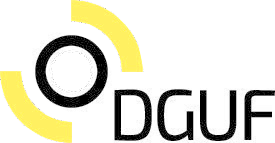Archäologie, Öffentlichkeit, Teilhabe und deren föderale Umsetzung: Ein archäologisch-denkmalpflegerischer Kommentar aus Schleswig-Holstein zu einer akademischen Scheindebatte
Identifiers (Article)
Abstract
Archaeology and Public Relations has been in the focus of academic debate for some time and thus can be regarded as being an integral part of an archaeological self-reflection. This trend is partially the result of challenging the mediation of archaeological research at universities. Notwithstanding, the issue of public participation in archaeology is important for a heritage protection authority, as the dissemination of research results is only one aspect of its legally defined remit. Another aspect is its obligation as public agency, which is a direct result of the public interest, which led to the establishment of a state-run monument protection in the first place. In contrast to other European countries, the German model of „Kulturhoheit der Länder“ (cultural sovereignty of the Federal States of Germany) is very distinctive in terms of its statutory and management framework (DNK, 2016). This obligatory framework is an expression of the public decision-making process, which sets forth overriding, abstract and concrete principles. Aside from subject-specific goals, this also includes public services, which is set apart from a sustainable management of the ‚archaeological heritage‘ as resource. The range of obligations include the development of historical centres and inner cities, as well as the facilitation of citizen involvement and volunteering. An additional responsibility is education. In the area of planning, economic growth and innovation are the goals, which include job security and affects mainly land-use planning and digitalisation. ‚Open data‘ and ‚open source‘ are the keywords here. Other issues touch upon the potential for tourism and local recreation as well as related promotion of economic development, which is directly linked to the archaeological heritage. The latter is supported by a swift, proper, transparent, and legally secured public involvement in planning procedures, relating to its obligation as public agency, i.e. „Trägerschaft öffentlicher Belange“ (TöB). Concrete goals of the federal state’s government is infrastructure development, which encompasses flood prevention, maintenance of infrastructure, road construction, as well as an expansion of the broadband, power grid, and railway infrastructure. Additionally, the planning goals of the energy reform have to be implemented as a consequence of global climate chance. All these issues have tangible effects on archaeological heritage protection practices and its public relations: The measures and decisions of a state-run monument protection agency is conditioned by the varied and diverse public interest, as well as the long-term protection goals for the monuments themselves. Both aspects are taken into account in legally defined procedures as direct consequence of a democratically legitimised decision-making process.
Statistics








